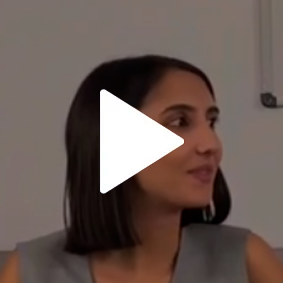
Operations Management Specialists
Master the planning, control, and quality tools in production
This course focuses on the operations subsystem within a company and its importance in the value chain. Students will learn tools for calculation, analysis, and decision-making in the production of goods and services, covering everything from process planning and control to quality and inventory management.
Discover Exclusive Wine Tours in Spain
Professor's Comments
Operations Management Methodology
Practical exercises and exam preparation
Students will face a midterm and a final exam, so consistent practice is key. Throughout the course, students work with operations control and management tools, preparing them in the most relevant aspects of each model. The course prioritizes solving real-world problems and applying key concepts.
Download the CheatSheet
Fill out the following form to download the syllabi for the subjects taught at MS Academy.
Operations Management Frequently Asked Questions
Discover Exclusive Wine Tours in Spain
Data Analysis
Learn advanced techniques in data analysis, visualization, and modeling.
Data Analysis
Capital Markets
Understand the workings of financial markets and investment management.
Capital Markets
Probability & Statistics
Master the essential concepts of probability and statistics.
Probability & Statistics
Financial Reporting
Learn to prepare and analyze financial reports for better decision-making.
Financial Reporting
Programming
Master Python and R for data analysis and economic modeling.
Programming
MFM
Descubre los principios clave de MFM y su aplicación.
MFM
Management Control
Learn how to measure business performance and optimize management with KPIs.
Management Control
Game Theory
Analyze the impact of economic policies on markets and society.
Game Theory
Statistics
Learn key statistical techniques for decision making and data analysis.
Statistics
Financial Accounting
Interprets financial statements and understands business accounting.
Financial Accounting
Cost Accounting
Calculate and analyze costs to improve profitability and resource management.
Cost Accounting
Corporate Finance
Discover how to optimize capital and evaluate investments in companies.
Corporate Finance
Looking for more subjects?
We provide academic support in all subjects at IE University.
Improve your performance with us. Are you looking for support in a specific subject?
Learn advanced techniques in data analysis, visualization, and modeling.
Data Analysis
Learn advanced techniques in data analysis, visualization, and modeling.
Data Analysis
Learn advanced techniques in data analysis, visualization, and modeling.
Data Analysis
Learn advanced techniques in data analysis, visualization, and modeling.
Data Analysis
Learn advanced techniques in data analysis, visualization, and modeling.
Data Analysis
Learn advanced techniques in data analysis, visualization, and modeling.
Data Analysis
Learn advanced techniques in data analysis, visualization, and modeling.
Data Analysis
Learn advanced techniques in data analysis, visualization, and modeling.
Data Analysis
Learn advanced techniques in data analysis, visualization, and modeling.
Data Analysis
Learn advanced techniques in data analysis, visualization, and modeling.
Data Analysis
Learn advanced techniques in data analysis, visualization, and modeling.
Data Analysis
Learn advanced techniques in data analysis, visualization, and modeling.
Data Analysis
Discover Exclusive Wine Tours in Spain
Our methodology in action
Our methodology in action
Each class is designed to adapt to your needs and ensure you fully understand the concepts. We use exam simulations, key exercises, and intensive practice to help you master each subject.
We understand your needs
We designed a customized plan
Results-focused sessions
Our Teaching Method
Our Teaching Method
Designed specifically for IE University students, our approach combines theory , practice , and personalized attention in every session. The methodology is geared towards ensuring that each student not only understands the concepts but also applies them effectively in their core subjects.
100% Online Classes
Learn from anywhere in the world with our online sessions.
Small Groups
Enjoy personalized classes in groups of up to 4 students.
Practical Methodology
Master your key subjects with real exercises and practical simulations.
Total Flexibility
Adapt your classes to your pace with schedules tailored to your needs.
Discover Exclusive Wine Tours in Spain
The students of
IE University's opinion

Student at IE University
"The Finance and Economics tutoring at MS Academy helped me achieve excellent results at IE University."
The materials used are high quality and facilitate effective learning. I recommend these classes to anyone seeking an enriching and rewarding educational experience.

I was completely lost and needed clear guidance to help me move in the right direction. Thanks to MS Academy, I found the support, guidance, and tools I needed to give myself the boost I so desperately needed.
Sofia Serantes, student at IE University
Student at IE University
"A very good study method. It has helped me a lot with subjects like Cost Accounting and Statistics. It also includes material from IE's BBA courses, allowing me to see where to focus and how the different courses are structured."

If it weren't for the amazing team of teachers at MS Academy, I wouldn't have been able to overcome this challenge. Their patience, dedication, and teaching methods made complex concepts more accessible and understandable for me.
Francesca, a student at IE University
Student at IE University
"I have been a student at MS Academy for three years and the experience has been very satisfactory. They have all the materials for all the BBA subjects at IE University and have a very competent team of teachers."

MS Academy managed to turn all those subjects that worried me and caused me anxiety from my worst enemy into my best ally.
Alfonso Garay, IE University student
Your success starts with the MS Method
Your success starts with the MS Method
Calle Serrano, 93, 3º E. Madrid, Spain
+34-618 072 943
Experience The Life Style of Wine
Experience The Life Style of Wine
Discover Exclusive Wine Tours in Spain
Our students don't just pass, they excel. Discover how we've transformed academic challenges into success stories.
Student at IE University

Sofia Serantes
"The Finance and Economics tutoring at MS Academy helped me achieve excellent results at IE University."
The materials used are high quality and facilitate effective learning. I recommend these classes to anyone seeking an enriching and rewarding educational experience.
The Finance and Economics tutoring at MS Academy helped me achieve excellent results at IE University.
Student at IE University

Sofía Serantes
"A very good study method. It has helped me a lot with subjects like Cost Accounting and Statistics. It also includes material from IE's BBA courses, allowing me to see where to focus and how the different courses are structured."
A very good study method. It has helped me a lot with subjects like Cost Accounting and Statistics.
Student at IE University

Sofía Serantes
"I have been a student at MS Academy for three years and the experience has been very satisfactory. They have all the materials for all the BBA subjects at IE University and have a very competent team of teachers."
I have been a student at MS Academy for three years and the experience has been very satisfactory.
Stories and
real results
Real stories and results
your success starts with the MS Method
Experience The Life Style of Wine
Experience The Life Style of Wine
ABOUT ME
About
I'm Itziar Calleja, and for over 20 years, I've lived in Rioja, Spain, in a charming village along the banks of the Ebro River. This picturesque setting, surrounded by vineyards, medieval castles, and the stunning Sierra Cantabria mountains, has provided the perfect backdrop for my extensive journey in the wine world.
My professional experience encompasses all facets of the industry—from winery operations and vineyard management to exports, marketing, and, notably, wine tourism. My extensive travels have allowed me to taste countless wines, attend international fairs, and visit numerous wineries, which has not only broadened my knowledge but also helped me build a network of valuable contacts. These experiences have equipped me with a deep understanding of the wine industry and its nuances.
Prior to immersing myself fully in the wine world, I honed my skills in the UK hospitality sector, where I specialized in guest accommodation and management. Rising to the role of General Manager over almost eight years, I developed a keen sense of empathy and flexibility in meeting diverse guest needs. This background enriches my approach to wine tourism, blending professional hospitality with a deep love and knowledge of wine.
With Wine's Moment, I offer a unique blend of professionalism and personalized service. Our wine tours in northern Spain are meticulously crafted to reflect both my expertise and the top-tier connections I've established. Each tour is designed to be engaging and enjoyable, ensuring that every wine tells its own captivating story.
My goal is to provide a memorable experience that combines professionalism with a touch of fun and flexibility, making every wine tour a delightful journey for curious travelers.

Data Analysis
Capital Markets
Probability & Statistics
Financial Reporting
Programming
MFM
Management Control
Game Theory
Statistics
Financial Accounting
Cost Accounting
Corporate Finance
APPROACH
Our goal is to protect what matters most to you.
This space is for introducing visitors to the company or brand. Briefly explain its history, core values, what makes it unique, and what the site offers.
BENEFICIOS
A comprehensive service
Availability
Promote your business here, along with its products and services.
Efficiency
Promote your business here, along with its products and services.
Trust
Promote your business here, along with its products and services.
TESTIMONIALS
Our customers' opinions

This space is for sharing a review from one of the business's customers.
Carla Ramos

This space is for sharing a review from one of the business's customers.
Ricardo Flores

This space is for sharing a review from one of the business's customers.
Valeria Torres
FAQ
Do you have any questions?

.webp)


